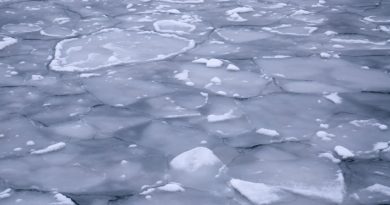Canadian Indigenous leaders stress need for less “colonial” approach to caribou conservation in North
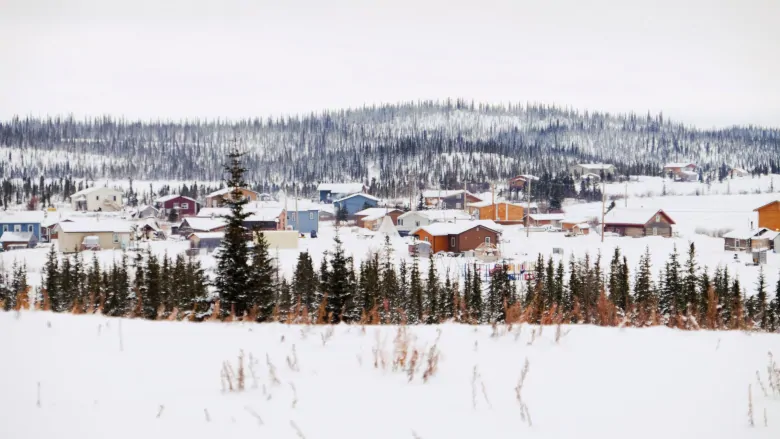
For the next five days, Colville Lake, N.W.T., is the centre of the Sahtú.
Leaders from across the region and the North are gathering in the community for a three-day public “listening session” on how to protect three of the territory’s caribou herds.
The hearing is the first of five tackling different topics related to caribou management, to be held in each of the Sahtú’s communities. A tentative schedule indicates it might be five years until they’re all done.
The Bluenose West and Bluenose East barren ground caribou herds were the subject of conservation hearings in 2007 and 2016 respectively. The Northern Mountain herd, a species of woodland caribou, has been considered at risk since 2005.
This week’s hearing is the first time multiple herds will be discussed in a single session, according to Deborah Simmons, the executive director of the Sahtú Renewable Resources Board (SRRB), which organized the session.
“The board is aware of conservation concerns for all the kinds of caribou that are living in our Sahtú region,” she said. “We’ve broadened the net.”
Simmons says the board is hoping the sessions are less rushed than those in 2016, and allow for a broader range of evidence that better reflects the experience of the communities that rely on the caribou and share a historic relationship with the herds.
For Colville Lake Chief Wilbert Kochon, it’s all “one herd” — but one in need of a new, less “colonial” approach to conservation.
The hearing will open with the presentation of Colville Lake’s locally drafted caribou management plan, which follows Délı̨nę’s 2016 plan in basing conservation strategies on traditional Dene law.
“I’m hoping that … people will listen to what we’re doing,” said Kochon.
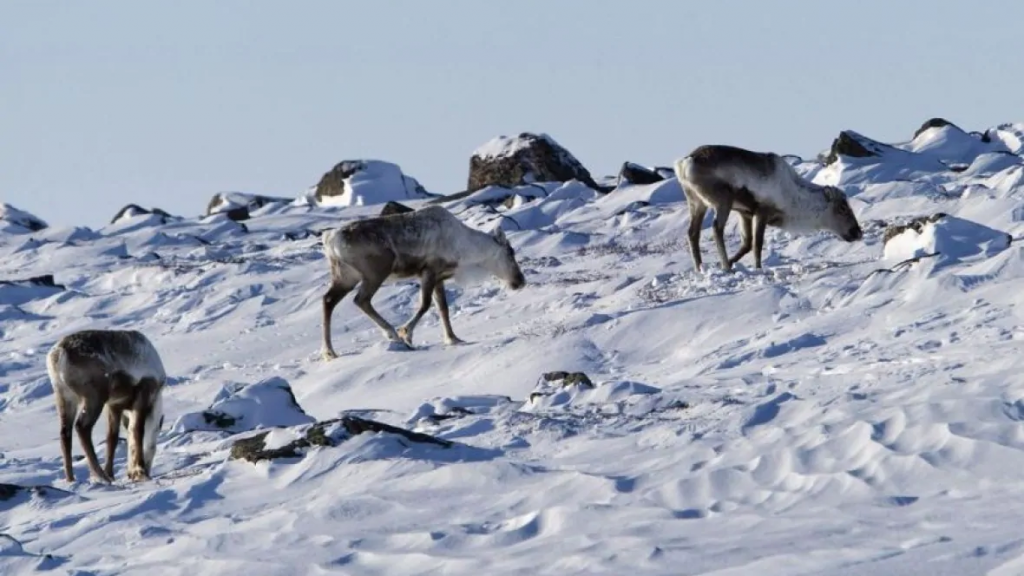
End to ‘control and criminalization’
The session is the first organized by the SRRB since 2016, when a hearing on the Bluenose East herd resulted in strict limits on harvests as the herd faced rapid population decline.
Colville Lake criticized those limits at the time as “racist and dangerous,” arguing the cap wrongly blamed the herd’s decline on Indigenous hunting, and ignored other influences like climate change, resource developments, and natural population cycles.
That hearing also resulted in an endorsement for Délı̨nę’s local management plan, which enforces traditional hunting methods and educates hunters on the sacred relationship between the community and the herd.
Colville Lake’s plan echoes Délı̨nę’s in basing conservation controls on a traditional respect for the animals. It calls the existing system of tags and quotas an “unprecedented colonial system of control and criminalization of Indigenous hunting.”
“For many years, [the Crown] thought that only their laws mattered,” an advanced copy of Tuesday’s presentation on the plan reads.
“Self-regulation in accordance with community conservation plans is a more effective means of conservation than Wildlife Act regulations and enforcement.”
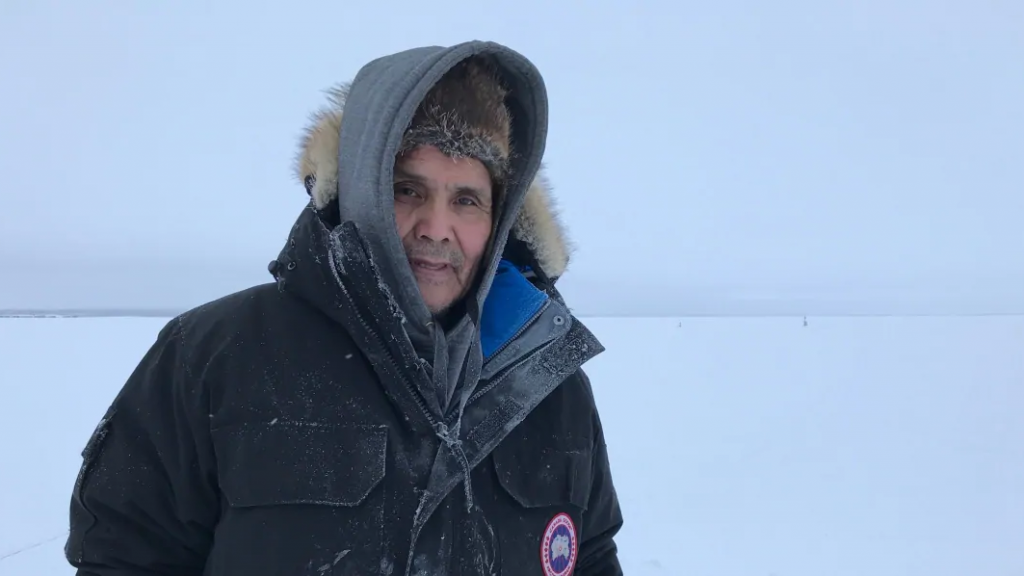
Disputed facts
Since the 2016 hearing, the estimated size of the Bluenose East herd has dropped by nearly half, and the harvest has been capped at fewer than 200 animals.
But Kochon and other leaders have at times criticized the counting methods employed by the Department of Environment and Natural Resources. The text of Colville Lake’s plan suggests the department relies too heavily on population counts for assessing the overall health of the herd, a method it calls “reactive” and “ineffective.”
In its place, it proposes “a more holistic and traditional approach to conservation … [based] on local and ground-based knowledge and advice, with the inclusion of science to fill gaps as deemed helpful.”
Both the Délı̨nę and Colville Lake plans rely primarily on volunteer reporting to measure the health of the herd. That has led some wildlife authorities to criticize local renewable resource councils for the quality of the data they gather on annual harvests.
In a submission to the hearing from the Wildlife Management Advisory Council of the N.W.T., Larry Carpenter, the chair, wrote that the council would “limit their participation” in the board’s hearings until they received better data from the SRRB.
Since a 2007 hearing on the Bluenose West herd, “there have been no noticeable improvements in the sharing of harvest information from communities within the Sahtú with wildlife co-management partners,” it reads.
Improving how data on the herds and the harvest is shared between the dozen or so parties will be one major focus of the hearings, Simmons said.
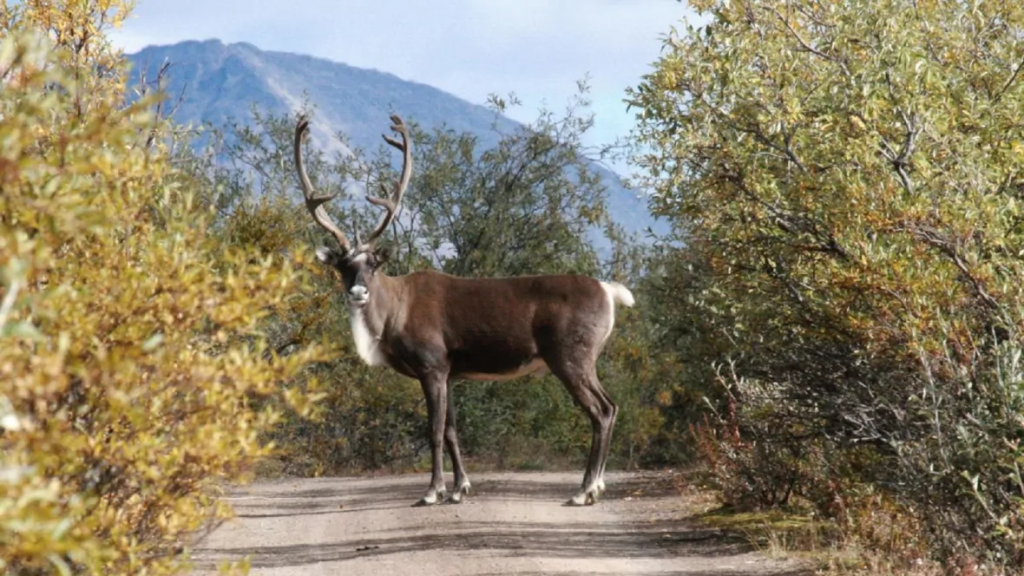
Decisions, decisions
Colville Lake will not be alone in making the case for local management. They’ll be supported by submissions from the Ross River Dena Council, which is fighting the Yukon government to establish a local licensing system for hunting caribou.
But not every local authority is in opposition to the government. The session will also include remarks from the Inuvialuit Game Council, which has had a much more positive working history.
“We have a very robust monitoring system here in the [Inuvialuit Settlement Region] where we … abide by the letter of the law,” said Vernon Amos, the chair of the Inuvialuit Game Council. “We just want to … really try to reinforce that they should be following that too and abiding with the rules and regulations.”
Both the Environment Department and local authorities agree Indigenous knowledge should play a much larger role in guiding conservation efforts. Both see hunter education as crucial to ensuring the traditional respect survives.
Ultimately, what the SRRB heard in their listening session won’t be clear until March 31, when it releases its list of resulting decisions.
It could be a long time until those decisions have an effect. More than four years on from Délı̨nę’s plan, the Environment Department is still “consider[ing] the issue” of amending the Wildlife Act to incorporate the plan, according to a submission to the hearing.
“We do know that there are some urgent decisions that need to be made,” said Simmons. “If the process is rushed too much,” she said, “the risk is that we don’t have the evidence needed for decisions.”
Related stories from around the North:
Canada: Arctic Canada: Nunavut government asks to lower caribou hunt, which could impact local communities, CBC News
Finland: The Arctic railway: Building a future… or destroying a culture?, Eye on the Arctic special report
Russia: Authorities in northwest Russia move to protect wild reindeer, The Independent Barents Observer
Sweden: Indigenous reindeer herders request emergency aid after drought, wildfires ravage Sweden, Eye on the Arctic
United States: Bill to protect ANWR passes early hurdle in Washington, CBC News

